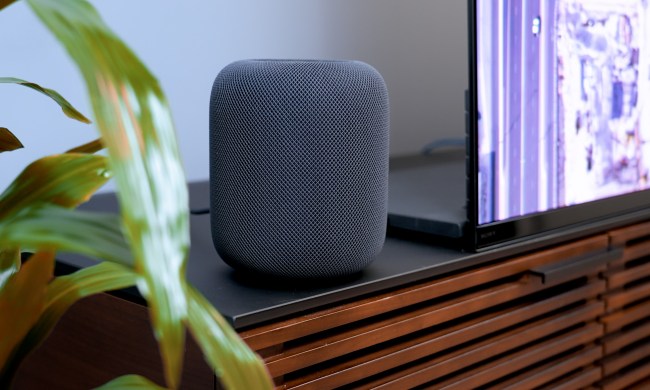Smart speakers are all the rage just now, with the market becoming more competitive with every passing month.
Amazon started the craze with the launch of its first Alexa-powered Echo speaker back in 2014, but more recently other big hitters such as Google and Apple have entered the market with their own offerings, putting pressure on sales of Amazon’s growing range of smart speakers.
Global smart speaker shipments reached 9.2 million units in the first quarter of 2018, the latest data from research firm Strategy Analytics suggests.

Amazon is estimated to have shipped 4 million units during the period from January to March, but its global share of the market has fallen by almost 50 percent from the same quarter a year ago.
The squeeze isn’t just the result of the growing popularity of Google’s smart speakers, or indeed the arrival of Apple’s HomePod speaker in February, but also because of a surge in interest among consumers in China, who are flocking to smart speakers made by local tech firms such as Xiaomi and Alibaba.
Strategy Analytics’ data indicates that Amazon had 43.6 percent of the market in the first quarter — down from 81.8 percent a year earlier — with Google in second place with 26.5 percent, up from 12.4 percent a year ago. Alibaba is positioned third with 7.6 percent, Apple next with 6 percent, and Xiaomi fifth with 2.4 percent.
“Amazon and Google accounted for a dominant 70 percent share of global smart speaker shipments in the first quarter of 2018, although their combined share has fallen from 84 percent in the fourth quarter of 2017 and 94 percent in the year ago quarter,” Strategy Analytics director David Watkins said in a release.
He put it down, in part, to strong smart-speaker growth in China, where major Western brands are currently absent. Alibaba and Xiaomi are the leaders there, with their strong showing in the domestic market alone enabling them to push into the global top five, Watkins said.
Strategy Analytics vice president David Mercer noted that while the current crop of smart speakers are “by no means the finished article,” the device has nevertheless succeeded in capturing consumers’ imaginations at its relatively early stage of development.
Mercer predicted that the smart speaker market is set to see a “rapid evolution in design, functionality, and associated use cases over the coming years,” adding, “We are clearly heading toward a time in the not too distant future when voice becomes a standard mode of technology interaction alongside established approaches like keyboard, mouse, and touchscreen.”
If you’re yet to dive into the smart-speaker market and want to find out more, be sure to check out Digital Trends’ look at some of the best smart speakers on the market today.


